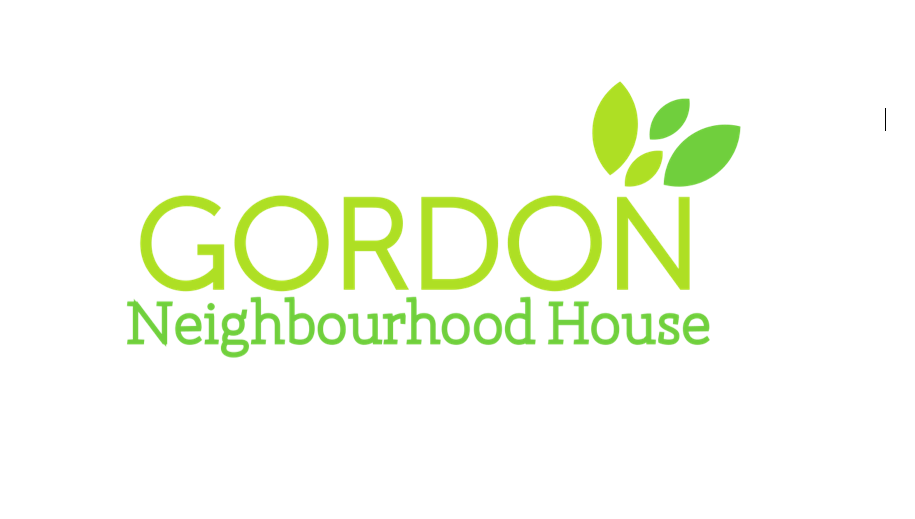“Education is the most powerful weapon which you can used to change the world” – Nelson Mandela
Hello for the very last time… 🙁
The last three months have been spent planning and implementing our food literacy workshops with the kids from the after school program at Gordon Neighbourhood House (GNH). As the term comes to an end and thus our time as a team; we wanted to take a moment to reflect upon a moment of significance our team shared while doing our Community Based Experiential Learning (CBEL) project.
What?
If you’ve been keeping up with our journey, you may remember us stating a moment of significance being the personal relationship we developed with each other. It is safe to say this was one of the definite highs of the course, but since then we have actually spent time hands on at GNH and found that experience to be far more significant. Prior to the first day of the workshop, we weren’t entirely sure what to expect. Planning on spending the full three hours on food literacy, we arrived with plenty of activities and a program design that would keep everyone entertained. After this first day noting the high energy levels resulting from a full day spent in school prior to the program, we realized in order to make the program as effective as possible we needed to make some changes to our next approach. With the bread baking we found that focus was significantly reduced after the first hour, and it may not be realistic to expect participation for such an extended period of time. Although participation in the actual bread making declined each time the bread had to rise, there was still a lot of excitement surrounding making and eating their own food. This excitement was specifically noted upon our arrival to the second workshop day when a girl enthusiastically cried out:
“Do we get to make food again today!?”
This exclamation showed us the extent of (what we initially thought of as) a small impact, can have.
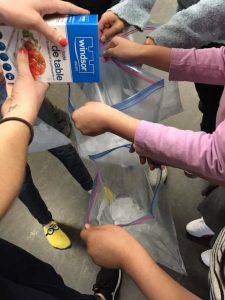
So what?
With regards to program adjustments the second day, we came with fewer activities planned which would allow the kids more free time instead of being an extension of their school day. We also brought with us a direct method of evaluation; “Draw a Picture of a Healthy Plate” where we got the kids to draw what they believe to be a healthy meal on a paper with a picture of a plate on it (pictured below). This was helpful to our assessment in addition to the questions we had asked on the first day, but also proved to be a really fun activity for the kids.
By utilizing our first workshop experience to create a better one the second time, we already felt more confident to make a greater impact this time around. However, upon hearing the excitement in the girls voice about our return, our confidence was boosted up and this allowed us to better deliver the presentation. Initially our project felt almost like there was no significant impact being left behind with these kids, especially since our bread making workshop didn’t turn out exactly as planned. Our expectations were much like those of Dan Barber (2011) who felt he could perfectly replicate another project and there would be no downfalls (1). We found the bread workshop idea from an online source that made it sound like an ideal activity for elementary aged children. However, we did not consider the large size of the group of children we are working with, or the energy levels they will have after a full day of learning at school. For these reasons, we were not what we would define as successful in our first endeavour at the Gordon Neighbourhood House and thus felt it was a total flop.
Nevertheless, seeing the excitement when we came back the second time, led us to believe we are making a meaningful impact in some sort of way amongst these children.
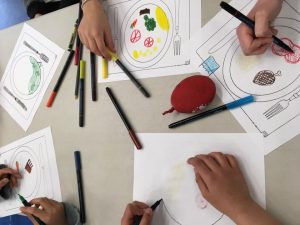
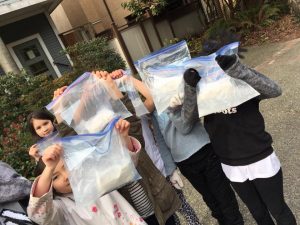
Now What?
Now that we realize all the time and effort we put into planning and executing made such a significant impact, we feel more inclined to further seek out knowledge and experiences to better understand the importance of working with youth to solve bigger world problems. Children tend to admire and respect parents and educators, and see them as role models (2). Although this was only a couple of hours out of our day, experiences like this are remembered by youth much more actively. We strongly feel that these sort of workshops can impact children to a great extent in terms of positively impacting food literacy skills. For only $2 per child, we were able to spend time getting children excited about learning how to prepare food. This has shown to be a great impact for a relatively small price. Ideally, we want to be able to have a repertoire of techniques to be able to not only offer our own workshops (of any sorts), but also be able to guide others in how to be successful in likewise endeavours. Collectively, we feel more ready to take on intiatives that provide educational resources to tackle food literacy issues through the power of educating youth in our future careers as food systems professionals
As you hopefully already know, we had a great time working together on our CBEL project. We truly hope you enjoyed following our adventure at the Gordon Neighbourhood House! Farewell…
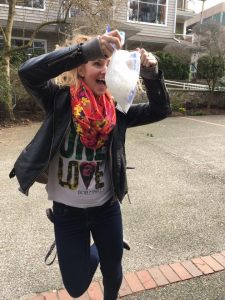
References
- Barber, D. (Speaker). (2011, Dec. 2nd). Poultry Slam 2011: Act 3: Latin Liver [Audio podcast]. Retrieved from: https://www.thisamericanlife.org/radioarchives/episode/452/poultry-slam-2011?act=3#play
- Children look up to parents. (2014 ) South Wales Echo. Retrieved from: http://www.lexisnexis.com.ezproxy.library.ubc.ca/hottopics/lnacademic/?shr=t&csi=244364&sr=HEADLINE(%22Children+look+up+to+parents%22)+and+date+is+2014
